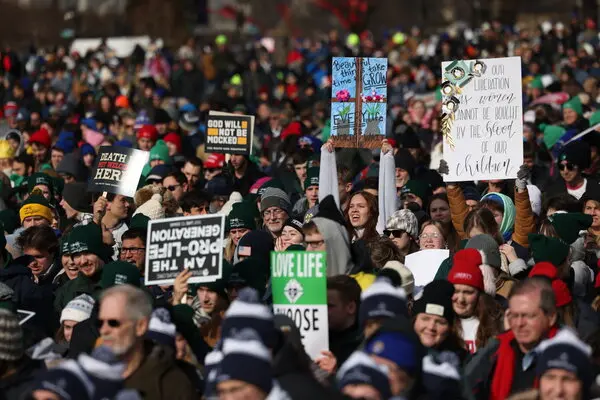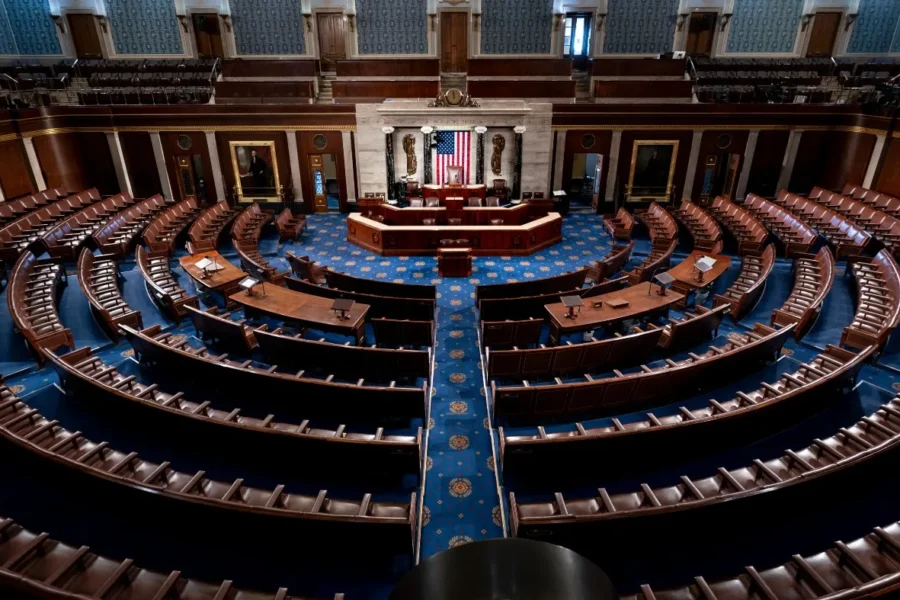Critics of the Seventh Circuit’s decision blocking the heart of an Indiana law that sought to defund abortion providers (including Planned Parenthood) are overlooking a silver lining in the opinion. The court held—in no uncertain terms—that withholding public funds from abortion providers, regardless of whether those funds are used for abortion-related services, does not necessarily create a constitutional problem. Further, the decision provided valuable guidance to states seeking to ensure that taxpayer funds are not used to bankroll the abortion industry.
The court held that Indiana could not disqualify abortion providers from receiving traditional Medicaid funds (i.e., federal and state matching funds that cover general medical care for the poor), because they perform abortions. However, the court reached this decision based on language in the federal Medicaid statute that restricts states’ discretion to define who is “qualified” to provide Medicaid services—not the Constitution. In other words, if Congress amends the federal Medicaid statute to give states more discretion to determine who is qualified to receive Medicaid funds, states can use that discretion to cut off abortion providers.
Background: The Indiana Law
Enacted in 2011, House Enrolled Act 1210 (the Act)[i] prohibits Indiana agencies from contracting with or making grants of state or state-administered federal funds to entities that perform abortions or maintain or operate facilities where abortions are performed.[ii] The Act also cancels existing contracts with abortion providers. In 2011-2012, at least 11 states, including Indiana, diverted or withheld federal and/or state family planning funding from abortion providers. Notably, Indiana’s law is the most comprehensive in that it applies to all public funds, including traditional Medicaid funds.
The 7th Circuit court described the Act this way: It “fills a gap in Indiana law regarding public funding of abortion . . . [by] aim[ing] to prevent the indirect subsidization of abortion by stopping the flow of all state-administered funds to abortion providers.”[iii]
Not surprisingly, the law was promptly attacked by abortion providers and the Obama Administration.[iv] Planned Parenthood challenged the Act in federal court and sought an immediate injunction against its implementation, and the Obama Administration rejected the state’s proposed amendment to its Medicaid plan excluding abortion providers. Without the Administration’s approval of its plan, the state faced the possibility of losing Medicaid funding.
The District Court Decision
On June 24, 2011, the District Court enjoined Indiana from enforcing the Act with respect to the Medicaid funding and funding provided to the state for programs that track sexually transmitted diseases (DIS grants).[v] The court held that Planned Parenthood was likely to succeed on its claims that (a) the Act violates the “free choice of provider” provision found in the Medicaid statute (explained below) and (b) the Act is preempted by the federal statute authorizing DIS grants. The court did not address a constitutional claim advanced by Planned Parenthood—that the Act “places an unconstitutional condition on its receipt of state-administered funds because it must choose between providing abortion services and receiving public money.”[vi]
Tuesday’s 7th Circuit Decision
Medicaid Funding
The Seventh Circuit agreed with the district court that the Act likely violates the “free choice of provider” provision in the Medicaid statute. This federal law provides that state Medicaid plans must “provide that . . . any individual eligible for medical assistance . . . may obtain such assistance from any institution, agency, community, pharmacy, or person, qualified to perform the service or services required.”[vii]
Interpreting this statute and related statutes and regulations, the court held that:
Although Indiana has broad authority to exclude unqualified providers from its Medicaid program, the State does not have plenary authority to exclude a class of providers for any reason—more particularly, for a reason unrelated to provider qualifications. . . .”[Q]ualified” means fit to provide the necessary medical services . . . The [Act] excludes Planned Parenthood from Medicaid for a reason unrelated to its fitness to provide medical services, violating its patients’ statutory right to obtain medical care from the qualified provider of their choice.
DIS funding
However, the court did not agree with the district court that Planned Parenthood’s DIS grant claim was likely to succeed. The court held that Planned Parenthood could not likely challenge that provision of the Act under the Supremacy Clause,[viii] and even if it could, the Act did not conflict with the federal law authorizing the DIS grants. The court noted that the federal law attached only one string to the block-granted money—“that the federal money be used for the stated purposes.”[ix]
Unconstitutional-conditions
Finally, and perhaps most critically, the court held that the “unconstitutional-conditions claim does not supply an alternative basis for relief” for Planned Parenthood. The court wrote:
It is settled law that the government’s refusal to subsidize abortion does not impermissibly burden a woman’s right to obtain an abortion. If a ban on public funding for abortion does not directly violate the abortion right, then Indiana’s ban on other forms of public subsidy for abortion providers cannot be an unconstitutional condition that indirectly violates the right.[x]
The court carefully explained that the Supreme Court “has explicitly rejected a neutrality-based view of abortion rights . . . [T]he abortion right recognized in Roe v. Wade . . . implies no limitation on the authority of a State to make a value judgment favoring childbirth over abortion, and to implement that judgment by the allocation of public funds.”[xi] After discussing numerous Supreme Court cases affirming the principle that states can restrict or prohibit public funding/subsidization for abortions, the court wrote:
As these cases make clear, the government need not be neutral between abortion providers and other medical providers, and this principle is particularly well-established in the context of governmental decisions regarding the use of public funds. As long as the difference in treatment does not unduly burden a woman’s right to obtain an abortion, the government is free to treat abortion providers differently.[xii]
…
If, as the foregoing cases hold, the government’s refusal to subsidize abortion does not unduly burden a woman’s right to obtain an abortion, then Indiana’s ban on public funding of abortion providers—even for unrelated services—cannot indirectly burden a woman’s right to obtain an abortion.
Looking Forward: Future Efforts to Defund Abortion Providers
While the decision in Planned Parenthood v. Indiana strikes a major portion of Indiana’s new law, it also provides hope and instruction for future efforts to defund abortion providers.
The court clearly stated that bans on public funding of abortion providers, regardless of whether those funds are being used for abortions, “cannot” burden a woman’s “right to obtain an abortion.” In other words, states can prohibit abortion providers from receiving state or state-allocated federal funds even if those funds have nothing to do with the provision of abortion. This holding is critically important for states who wish to ensure that public funds are not being used to bankroll the abortion industry.
However, before states charge forward with laws similar to Indiana’s, they must remember that the court struck Indiana’s prohibition on the allocation of Medicaid funding to abortion providers on statutory grounds. If a federal law authorizing public funds prohibits (or, at least, arguably prohibits) states from establishing restrictions like those found in Indiana’s Act, courts will likely strike down any efforts to withhold those funds from abortion providers.
So what is the solution? Ideally, Congress should amend statutes authorizing funding that is sought by abortion providers—through Medicaid, Title X, and other programs—to prohibit allocation of the funding to abortion providers. However, more realistically, Congress must give states more discretion in how they choose to allocate the funds. Clearly, the current U.S. Senate and Obama Administration would not support such an effort. However, if a new Congress and administration are willing to make this change, states may find that courts will not block their efforts to protect life by defunding those who profit from taking it.
[i] Ind. Code § 5-22-17-5.5.
[ii] The Act does not apply to hospitals and ambulatory surgical centers. Ind. Code § 5-22-17-5.5(a).
[iii] Planned Parenthood v. Indiana, No. 11-2464 (7th Cir. 2012) p. 6-7.
[iv] The Obama Administration has intensely opposed other state efforts to defund abortion providers as well. In at least six of the states that have cut off funding from Planned Parenthood and other abortion providers, the Obama Administration has reacted by either withholding or threatening to withhold federal funds from the state (two states – Indiana and Texas) or by undermining state law through direct federal contracts with Planned Parenthood and other entities within the state (four states — New Hampshire, New Jersey, North Carolina, and Tennessee).
[v] 42 U.S. § 247c(c).
[vi] Planned Parenthood v. Indiana, p. 3.
[vii] 42 U.S.C. § 1396a(a)(23).
[viii] The court held that the Medicaid “free choice of provider” provision gives Medicaid-eligible patients an individual right to challenge state restrictions to the provision. See 42 U.S.C. § 1983. No party argued that the DIS grant statute creates a private right actionable under § 1983.
[ix]Planned Parenthood v. Indiana, p. 38.
[x] Id. at 4.
[xi] Id. at 45-46 (quoting Maher v. Roe, 432 U.S. 464, 473-74 (1977)) (emphasis added).
[xii] Id. at 47.




